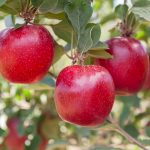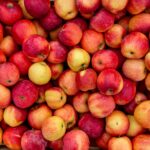South Korean imports of tropical fruit at an all-time high

South Korean fruit imports have been at an all-time high in these past couple of months, according to Korea Customs Service trade statistics.
The government has been spearheading an effort to diversify supply to alleviate the high fruit prices of apples and pears, which are the main culprits behind price spikes. Since March, authorities have been intensively supplying imported fruits.
Banana imports reached an all-time high of $46.3 million in April, up 56.6% from the previous month, and pineapple imports also hit a new high of $9.1 million last month, an on-month increase of a little more than 74%.
This marks the first time pineapple imports have exceeded $9 million.
Mango and orange imports also saw substantial spikes of 85.9% and 30.7% respectively, compared to the same period last year, an increase of $14.339 million. Avocados (1,233 tons) also increased by 22 to 131.7%.
Among the major imported fruits, only grapes (22%) and lemons (27.9%) decreased in April imports compared to March.
The overall import volume of produce saw a substantial 72.6% increase, reaching 9,324 tons and crossing the 9,000-ton threshold for the first time.
Imported fruits are expected to continue spiking throughout May and June due to government quota flexible tariffs and direct import movements that are expected to be in place until June.
According to aT (Korea Agro-Fisheries and Food Trade Corporation), 11 types of fresh fruits, including bananas, oranges, pineapples, and avocados, have been directly imported since March.
After the government applied tariff quotas on 21 types of fresh fruits, including bananas and mangoes in January, bananas (183,000 tons), pineapples (47,000 tons), mangoes (14,000 tons), grapefruits (10,100 tons), and avocados (1,177 tons) were imported into the country with a 0% tax rate.
5,000 tons of oranges were imported with a quota tariff (10%).
On December 26, 2023 tariff Adjustment and Tariff Rate Quota list for certain agricultural, forestry, and fishery products for calendar year (CY) 2024.
Flexible tariffs, which include tariff rate quotas (TRQs) and adjustment duties. Under the 2024 tariff regulation, U.S. exports of oranges, table eggs, processed eggs, shelled peanuts, sugar, and potato starch to Korea are being exported under lower tariff rates.
South Korea imports bananas primarily from the Philippines, Vietnam, and Colombia. Pineapple imports also come primarily from Phillippines, followed by Peru, Thailand, and Vietnam.














































